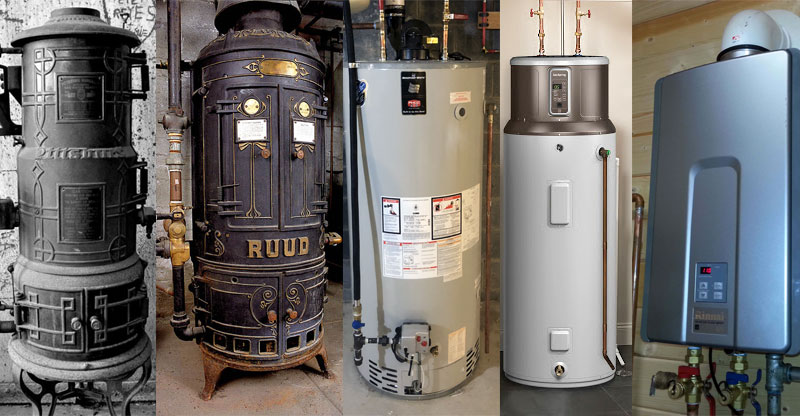Hot Water Tank History

The history of hot water tanks, also known as water heaters, dates back to ancient civilizations where various methods were used to heat water for bathing and other domestic purposes. The development of modern hot water tanks began in the 19th century and has evolved significantly over time. Here’s a brief overview of the key milestones in the history of hot water tanks:
Ancient Heating Methods:
- Ancient civilizations used simple methods to heat water, such as heating stones or metals and adding them to water containers. In Rome, hypocaust systems circulated hot air under floors to provide heating and warm water.
Early Domestic Water Heating:
- In the 1800s, early attempts at providing hot water for domestic use included open fires or stoves with water tanks placed above or adjacent to the heat source.
Introduction of Storage Tanks:
- In the late 19th century, advancements in plumbing and heating technology led to the development of early storage tank water heaters. These tanks stored heated water for household use.
David R. “D.R.” “D.R.” Dearborn’s Patents:
- In the late 1800s, D.R. Dearborn patented designs for water heaters that featured insulated storage tanks. This marked an early step towards more efficient and safer water heating.
Automated Gas Water Heaters:
- In the early 20th century, gas-fired water heaters with automatic ignition systems and safety controls became more common, improving convenience and safety.
Electric Water Heaters:
- In the 1920s and 1930s, electric water heaters gained popularity as electricity became more accessible. These heaters offered a clean and convenient way to heat water.
Tankless Water Heaters:
- In the mid-20th century, tankless water heaters (on-demand or instantaneous water heaters) were developed. These units heat water directly without the need for storage tanks, saving energy and space.
Energy Efficiency and Innovations:
- Throughout the latter half of the 20th century and into the 21st century, advances in insulation, materials, and heating technology led to more energy-efficient and compact water heaters.
Solar Water Heaters:
- The interest in renewable energy sources led to the development of solar water heaters, which use the sun’s energy to heat water. These systems are environmentally friendly and energy-efficient.
Tankless and Hybrid Electric Water Heaters:
- In recent years, tankless water heaters and hybrid electric heat pump water heaters have gained popularity for their energy efficiency and ability to provide hot water on demand.
Smart and Connected Water Heaters:
- The integration of smart technology allows users to remotely control and monitor water heaters, optimizing energy usage and providing convenience.
The history of hot water tanks reflects a combination of technological advancements, energy efficiency improvements, and the evolving needs of households for reliable and efficient hot water supply. Today, hot water tanks are a common fixture in homes and commercial spaces, providing essential hot water for various domestic and industrial purposes.


